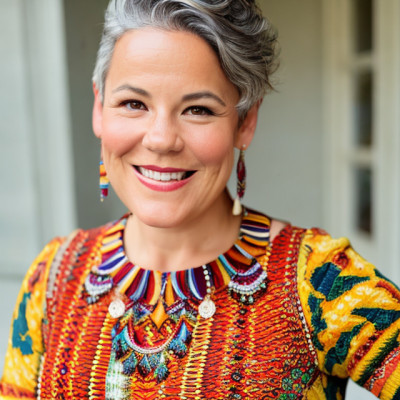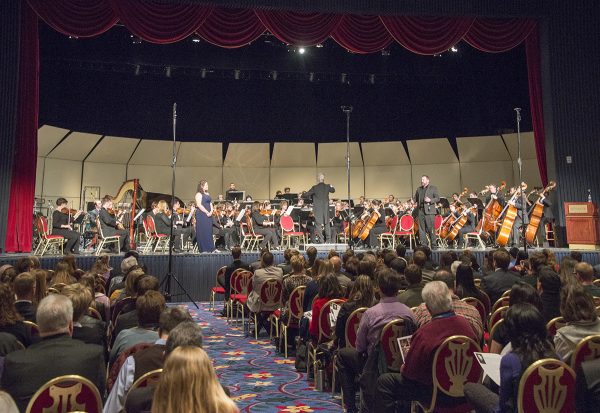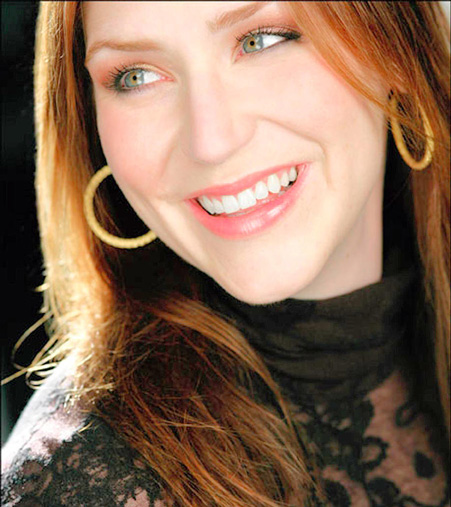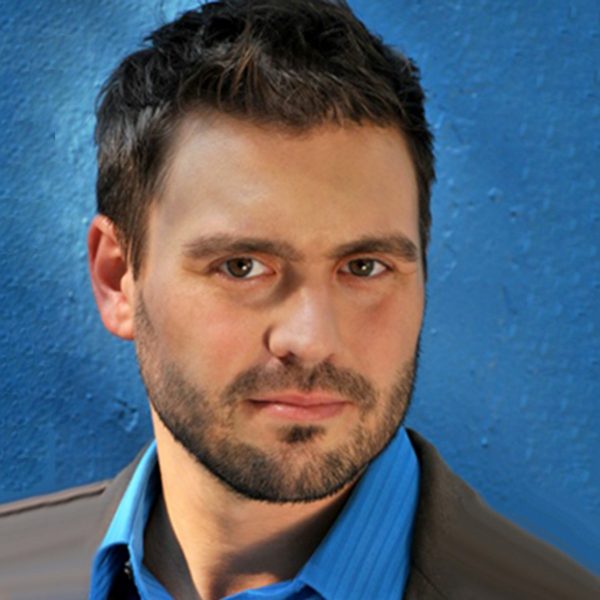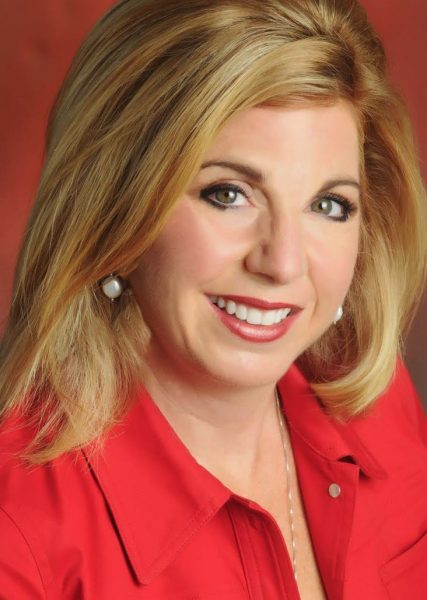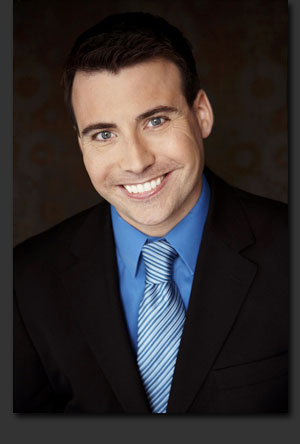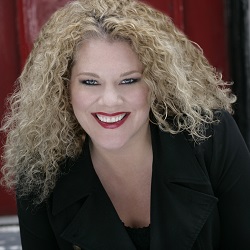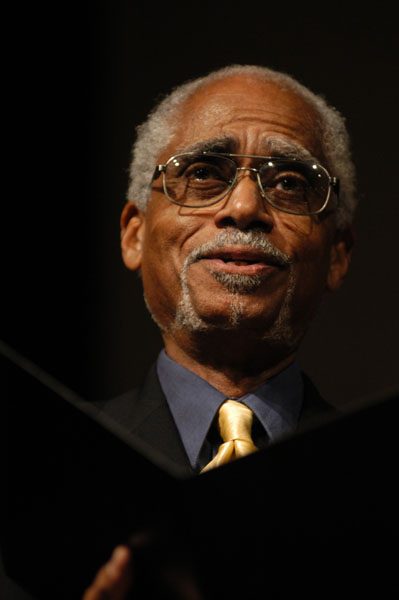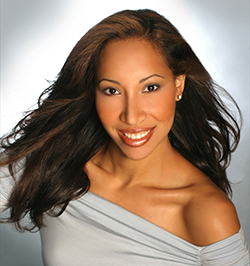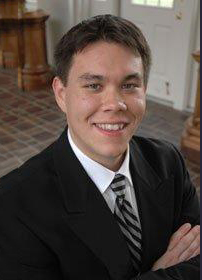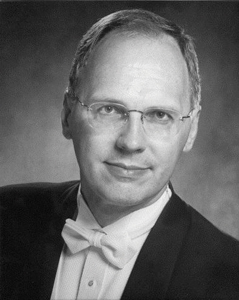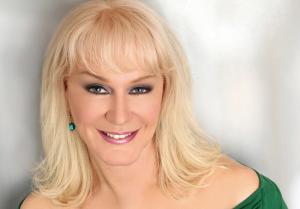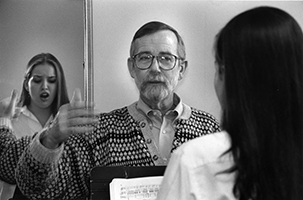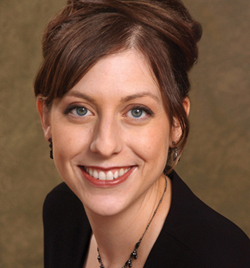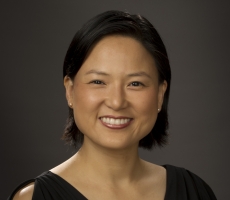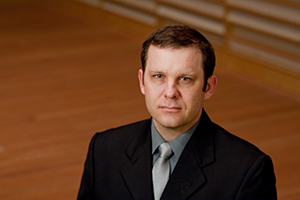Overview
At Colorado State University, you’ll work alongside dedicated faculty and students to develop the knowledge and skills for excelling in a variety of fields. The world-class University Center for the Arts is located in Fort Collins, consistently ranked as one of America’s top cities with a collaborative and thriving arts community.
The Colorado State University voice area provides students with excellent opportunities for vocal, artistic and personal growth. Each member of the voice faculty provides a nurturing, yet challenging studio environment. The emphasis of process over product allows students develop a solid platform of vocal technique for realizing their personal artistry.
All voice student study with the full faculty of professors of voice. In addition to a seminar for freshman voice majors that supports their transition to collegiate study, voice majors spend the Fall semester of their Freshman year by participating in individual lesson rotations with each of the voice faculty. In their second semester of study, voice majors are placed with a single teacher for the remainder of their degree program to further promote personalized and engaged care for the student throughout their study at CSU.
Voice students have the opportunity to perform in a variety of styles and formats, as both soloists and ensemble members of choirs, opera and musical theater productions, as well as chamber music collaborations. Voice students perform a jury each semester and sing on voice area and departmental recitals throughout the year.
Study With
Voice Events
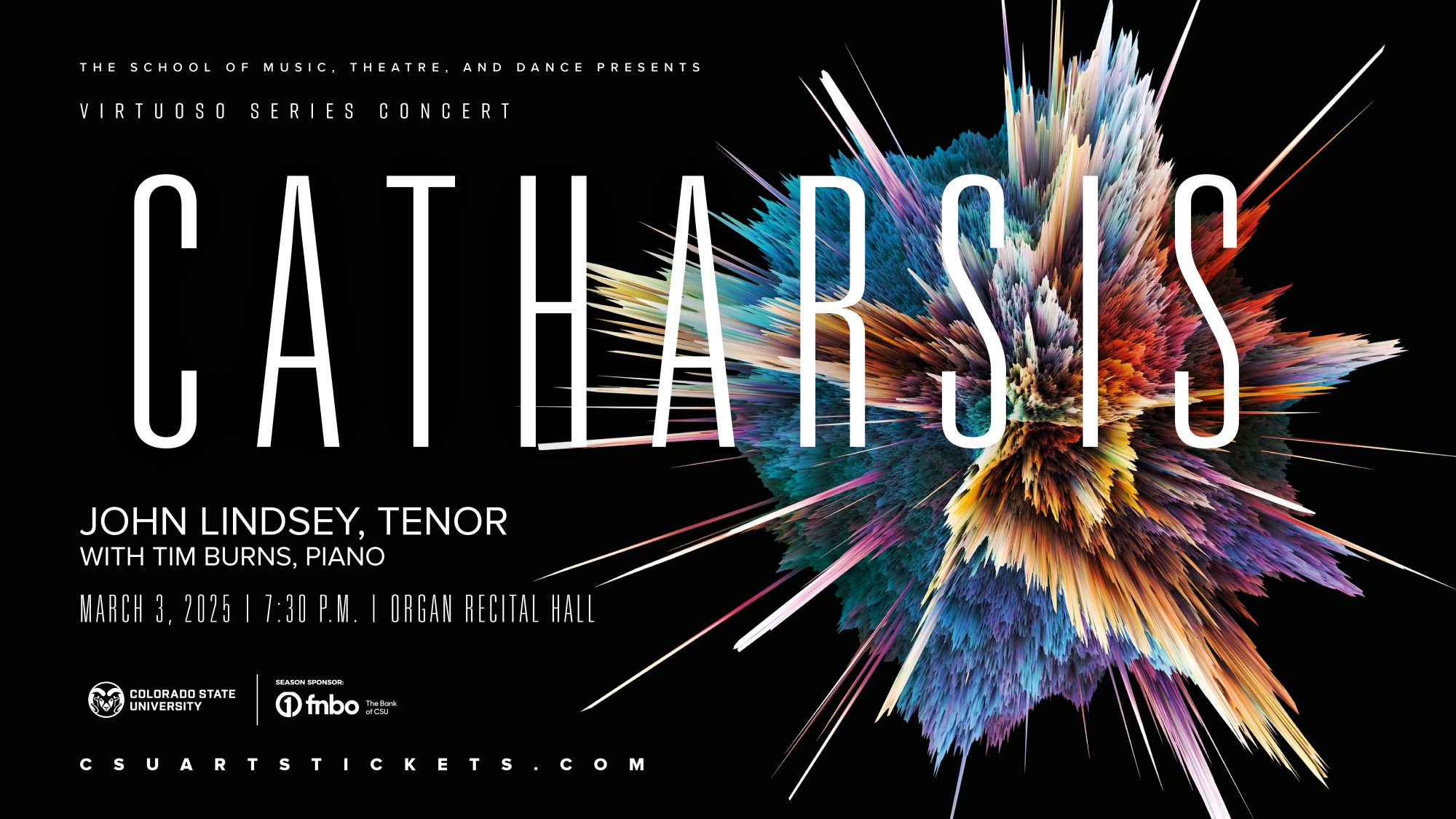
Virtuoso Series Concert: John Lindsey, Tenor
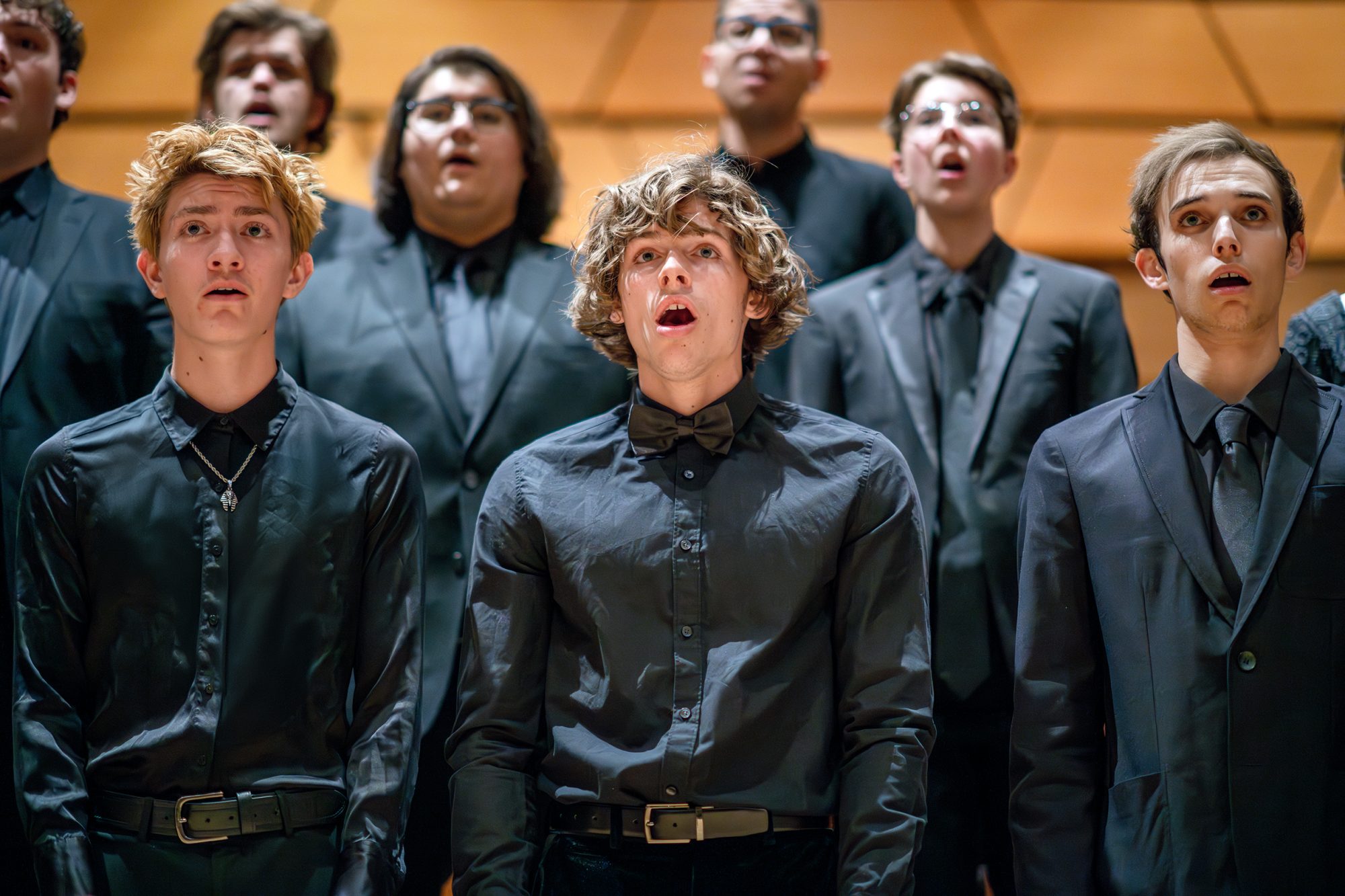
Spring 2025 Be a Voice Major for a Day
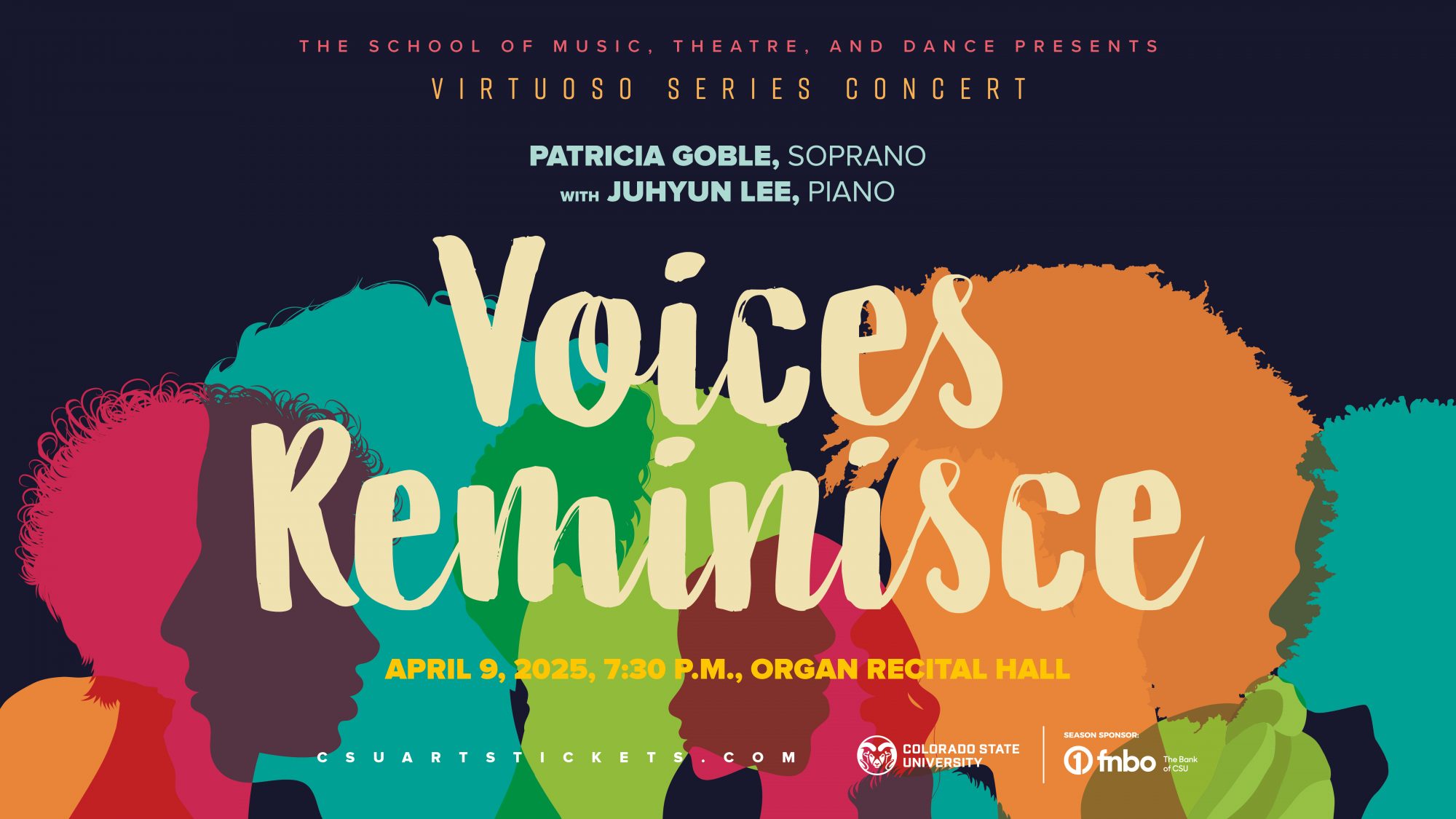
Virtuoso Series Concert: Patricia Goble, Soprano
News
February 2016 Alumni Class Notes
Cynthia Stokes, 1981, B.A. Speech and Theatre Arts, recently founded SD CITY Opera in San Diego, Calif., a new, artist-driven opera company dedicated to building community by turning beautiful music into stunning theatre and contributing to the dynamic reimagining of opera in America for the 21st century. Previously, Ms. Stokes started La Jolla Playhouse’s Summer Conservatory […]
University Symphony Orchestra Performs at Annual CMEA Conference at the Broadmoor
Last week, a good portion of our music faculty and staff, Music Education students, and the University Symphony Orchestra traveled to Colorado Springs for the Colorado Music Educators Association Clinic and Conference. The annual event is an exciting opportunity for the Colorado Music Education community to collectively connect, share, and learn. CSU faculty served the […]
November 2015 Alumni Class Notes
Heston McCranie, ’09, B.M. Music Performance, Cello, currently lives in Atlanta, Ga., and is working on her Ph.D. in Music Education at Georgia State University. Heston teaches string techniques for the university as well as working on research projects on improvisation and creativity. In the fall, she began a position as the primary orchestra director […]
Auditions
Undergraduate Voice Audition Information
Audition Information and Suggested Repertoire (all music majors and the minor)
I. Prospective first-year voice majors in Vocal Performance, Music Education, Music Therapy and Bachelor of Arts will demonstrate vocal technique as well as musical skills:
- Perform two prepared vocal solos from memory (see repertoire suggestions below). A piano accompanist will be provided. Bring your sheet music in the key you are singing.
- The voice audition is also an opportunity for you to ask us questions about the program and for us to get to know you and understand your goals.
II. Audition Repertoire: solos are comparable to songs that would be prepared and memorized for high school All-State Choir auditions and solo/ensemble competitions. Prepare two contrasting selections:
- One art song or aria* in Italian or English
- A second art song or aria in English, Italian, German, French, or Spanish (one musical theater, spiritual, or folk song selection may be substituted for either song).
*Opera arias from the 19th century (Puccini, Verdi etc.) are discouraged for freshman singers. Opera or oratorio arias from the 17th and 18th century are appropriate (Handel, Caldara, Scarlatti, etc.).
III. Suggested Repertoire – selections from:
- The First Book of Soprano (or Mezzo-Soprano, Tenor, Baritone) Solos
- The Second Book of Soprano (or Mezzo-Soprano, Tenor, Baritone) Solos
- 26 Italian Songs and Arias, (Medium High or Medium Low)
- Folk Songs for Solo Singers, (Medium High or Medium Low) – (published by Alfred)
IV. Audition Dress – Professional dress is recommended: skirts/dresses/dressy slacks for women; dress slacks/dress shirts for men. Please, no jeans, T-shirts, or sneakers.
V. Transfer Student Auditions
- Perform two prepared vocal solos or arias from memory, appropriate to your training and experience. A piano accompanist will be provided. Bring sheet music in the key you are singing. Bring a performance resume and/or repertoire list if you have one.
VI. Voice students seeking the Music Education or Music Therapy degree path will also have an interview with faculty from those areas.
Graduate Voice Audition Information
Graduate Voice Prescreening Requirement
When applying to the graduate school, please upload a video of your pre-screening selections through the digital portfolio attached to the application. The video upload should include performances of two selections from the following:
- An oratorio aria or 17th-18th Century piece
- An operatic aria
- One German art song
- One French art song
- One American/British/Canadian art song in English
- An oratorio aria or 17th-18th Century piece
- An operatic aria
- One German art song
- One French art song
- One American/British/Canadian art song in English
Please provide a typed program listing your selections.
PLEASE NOTE: Incoming students will be evaluated on diction the first week of classes in their first semester of study. Students will take a diction diagnostic exam, which will test their spoken and written diction skills in English, Italian, French and German lyric diction.


